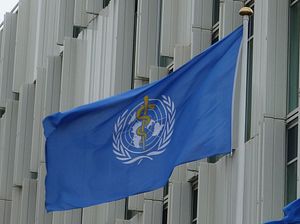The 71st World Health Assembly (WHA) will take place in Geneva from May 21-26. Universal Health Coverage (UHC) is the theme of this year in order to celebrate the 70th anniversary of the World Health Organization (WHO). The goal of UHC is to ensure that all people obtain the health services they need, without suffering financial hardship, by strengthening health system of each country.
Despite the fact that 99.6 percent of the population in Taiwan is covered by National Health Insurance and Taiwan has also developed outstanding epidemic prevention programs, we are still regrettably being excluded from the WHO. Ironically, the exclusion of Taiwan runs counter to the goals of the new WHO director-general, Dr. Tedros Adhanom Ghebreyesus.
Tedros has proposed a “triple billion” objective upon taking office. It is the most aggressive WHO reform strategy in recent years, with the goal of “1 billion more people benefiting from universal health coverage”; “1 billion people better protected from health emergencies”; and “1 billion more people enjoying better health and well-being” in the next five years. In addition, Tedros has made a clear commitment to “leaving no one behind,” to be applied to all communities. As the first African WHO director-general, he has paid many visits to Africa after being in the office for just more than a year and has built a WHO leadership team with an unprecedentedly high percentage of female experts.
However, even though Tedros is keen to reform WHO, he and his leadership team have continued the practice of suppressing Taiwan in the international arena. For example, Taiwan was allowed to participate in only five WHO technical meetings last year even though Taiwanese applied for 18 meetings. Last December, although Taiwanese officials were invited by Japan to join the UHC Forum in Tokyo, the WHO refused Taiwan’s participation by threatening to withdraw as the co-organizer of the event. This January, the chair interrupted our allies when they were speaking up for Taiwan during an Executive Board meeting, and “Taiwan” was inappropriately interpreted as a “foreign partner” in their speeches. Moreover, the WHO Secretariat made an unparalleled move to pressure the International Federation of Medical Students’ Associations (IFMSA), World Medical Association (WMA), and other international nongovernmental organizations to request Taiwan members to change their affiliation name from Taiwan to “Taiwan, China.” If not, the WHO threatened to suspend official relations with these INGOs.
Without question, China is the key driver of all these unfriendly gestures, as it intends to limit Taiwan’s international space through the WHO. Undoubtedly, China’s contributions are important for the WHO’s objectives. However, forcibly blocking Taiwan’s participation in global health affairs and ignoring Taiwan’s ability to make major contributions in the field, as China requested, means that the WHO has not only neglected its duties, but also deprived many people of their rightful chance to receive better healthcare services.
As the leader of global health affairs, the priority for Tedros should be protecting the well-being of each person instead of exchanging people’s health for monetary profits and other resources. Only by doing so can health truly be extended to “everyone and everywhere” in the world. The true meaning of incorporating Taiwan into the WHO is not to provoke disputes but to fulfill the obligations of the global health body.
Due to our exclusion from the global health network, Taiwan was not able to acquire instant disease information during the outbreak of Severe Acute Respiratory Syndrome (SARS) in 2003, and it cost dozens of lives and tens of billions of dollars in economic losses. Fifteen years have now passed. We strongly appeal to Tedros not to repeat the same mistake. At this historical transition moment for the WHO, pressuring and blocking Taiwan will never be considered as one of his achievements as the director-general. On the contrary, if Tedros is willing to accept Taiwan on the basis of the WHO Constitution, regardless of political interference from China (although it may temporarily cause China’s discontent), his conduct will genuinely show the true essence of the WHO and he will leave a good example for future generations.
Shih-Chia Lin is Executive Director of the Foundation of Medical Professionals Alliance in Taiwan and a former legislator of Taiwan.
































